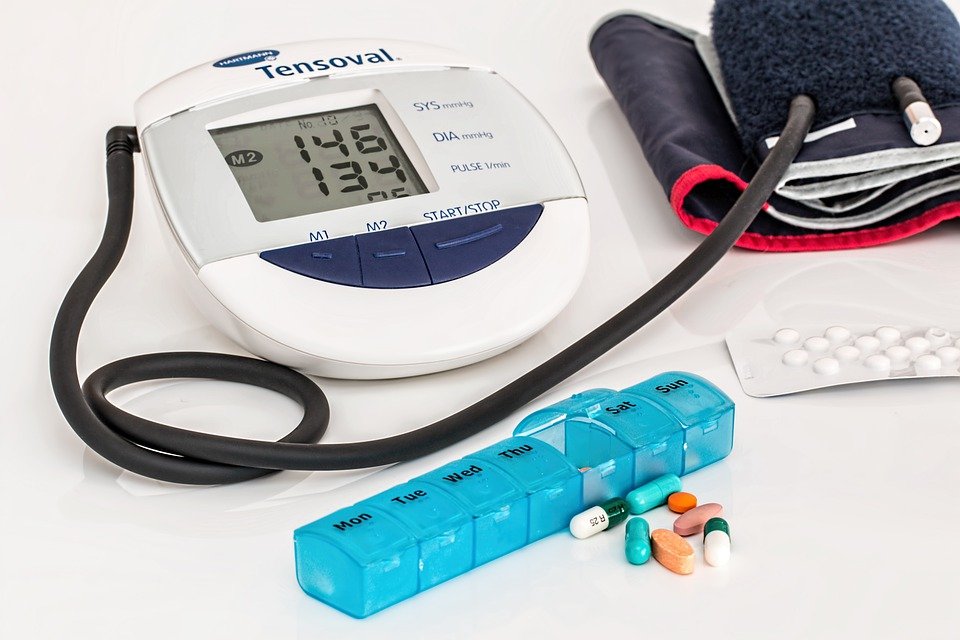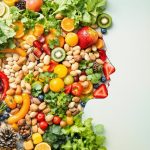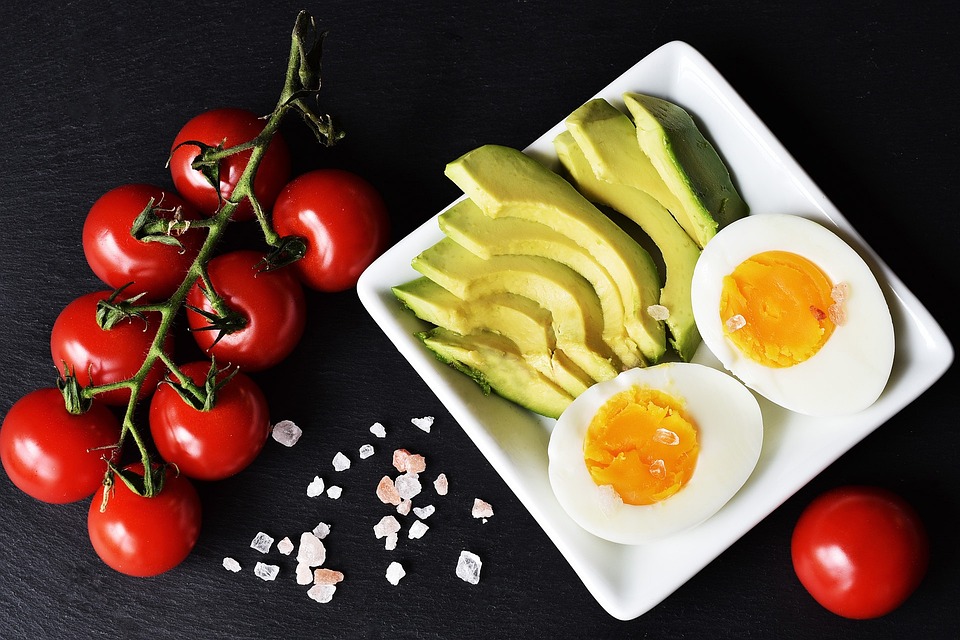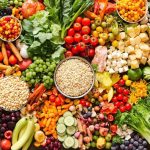
In 2018, the most fatal medical condition in Australia was heart disease, accounting for 11% of all deaths. An inadequate diet may be one of the possible factors that can lead to heart disease, although there isn’t just one particular cause.
Focusing on what you ingest and making sure you are eating a selection of nutritious selections from all 5 major food categories is one of the most effective preventive actions you can take.
Characteristics Of Heart Disease
Atherosclerosis is the cause of the restriction of the arteries that bring blood to the heart, which leads to heart disease. Plaque accumulates over time on the inner side of the walls of the artery, reducing the channel in which the blood travels to the heart. Atherosclerosis can begin while one is still young, which means that by the time they reach middle age, the condition can be well-developed.
Plaque build-up can be considered stable or unstable. If too much solid plaque accumulates in the arteries, it narrows them, leading to an insufficient amount of blood getting to the heart and inducing pain and distress. This is referred to as angina and must be tended to.
Plaque that is not secure has become inflamed and its cap is very thin, causing it to break easily, exposing the blood to the fatty material inside. The blood will attempt to close the gap by congealing, but in the process of doing so, the clot will obstruct the artery. This impedes the circulation of blood to the heart, deprives it of its oxygen supply, and injures or eliminates the heart cells. This is a heart attack.
Dietary Fats And Cholesterol Levels
Cholesterol is a type of fat that is necessary for various metabolic processes, and it is an integral part of all the cells in the body. The liver manufactures it out of the nourishment we ingest.
Lipids (fats) circulating in the bloodstream, such as low-density lipoprotein (LDL) and high-density lipoprotein (HDL), have cholesterol in them. A high level of LDL (‘bad’) cholesterol can cause plaque to accumulate in the arteries, while HDL (‘good’) cholesterol helps to transport cholesterol out of the body and discourage plaque buildup in the arteries.
Saturated fats
Eating saturated fats (considered to be ‘unhealthy’) can raise levels of LDL (‘low-density lipoprotein’, which is deemed ‘bad’) cholesterol in the veins. Fats that are heavily saturated can be found in animal foods such as butter, lard, and certain oils derived from creatures. Additionally, processed items such as pastries and cookies include a high amount of this type of fat.
Full fat or reduced fat dairy?
It seems that although dairy products with full-fat content (like milk, cheese, and yogurt) contain saturated fat, it has nothing to do with harmful effects on the heart.
The Heart Foundation suggests that the average consumer should stick to plain milk, yogurt, and cheese; however, those who have high LDL cholesterol levels should opt for reduced-fat versions of the same products.
Eggs
It was previously assumed that the cholesterol which appears naturally in eggs was damaging to cardiovascular health. Studies indicate that eggs do not positively or negatively impact the risk of developing heart disease within the general population.
Individuals who are looking to reduce their bad cholesterol levels or have type 2 diabetes should not exceed 7 eggs each week, according to the Heart Foundation.
Trans fats
Trans fats have a tendency to raise LDL (bad) cholesterol levels in the bloodstream, in the same way that saturated fats tend to do. However, they also have the result of decreasing HDL (good) cholesterol levels. Therefore, these substances can be detrimental to our health and heighten our probability of cardiovascular disorders (including heart problems and stroke).
Hydrogenation of either monounsaturated or polyunsaturated vegetable oils produces trans fatty acids, which can be used to create margarine, oils for deep frying, and shortening for baked goods.
Food businesses employ harder vegetable fats and shortening in their food products (like cakes, cookies, and fried takeout foods).
Certain trans fatty acids can be present normally in certain kinds of meat, butter, and dairy items.
Table margarine containing monounsaturated and polyunsaturated fat is a better choice than butter since it typically has a lower amount of trans fatty acids.
Monounsaturated and polyunsaturated fats
Decrease your odds of developing heart disease by substituting saturated and trans fats in your diet with polyunsaturated and monounsaturated fats.
Replace butter, coconut and palm oil, lard, dripping, and copha with oils derived from seeds or plants, like olive, avocado, sunflower, canola, safflower, peanut, soybean, and sesame.
Other origins of unsaturated fatty acids are raw, unhulled nut varieties, seeds such as chia, tahini, and flaxseed, as well as avocados.
Blood Pressure And Salt (Sodium)
Eating food that is loaded with salt may be related to having elevated blood pressure, which can augment the likelihood of having a heart condition or stroke. We consume significantly more salt than is needed in order to get our necessary daily sodium intake; keep in mind that salt consists of sodium and chloride.
The majority of sodium in our food does not come from shaking salt on top of what we eat, but rather from prepackaged and manufactured items. Even desserts and other items that don’t taste salty can have high amounts of sodium than anticipated!
One way to reduce the amount of sodium that you consume is to limit your consumption of processed foods, avoid eating at fast food restaurants, and use herbs and spices to season dishes instead.
10 Foods That Are Good for Your Heart
1. Salmon
According to Dr. Jaclyn Tolentino of Parsley Health, salmon has a pleasant color and consistency, and it is a great way to get omega-3 fatty acids. Consuming more salmon has been demonstrated to reduce the potential of stroke and heart failure, in addition to lowering inflammation, triglyceride levels, and blood pressure. This is due to the fatty acids found in salmon, mentioned Elroy Vojdani, MD, IFMCP, functional medicine practitioner and creator of Regenera Medical. Additional marks will be given if the product is beneficial to your mental health, hair, and nails.
Dr. Vojdani suggests that you consume two to four portions of uncontaminated seafood, such as salmon, during the course of the week. He suggests placing the item in the oven with rosemary and lemon on top of it.
2. Chia seeds
It is well-known that chia seeds provide an excellent source of nutrition which has been used for many years. Dr. Vojdani states that these also contain a wealth of omega-3 fatty acids, which will boost good cholesterol levels and reduce the risk of cardiovascular disease. Other advantages of consuming the super seeds include their high amount of antioxidants, fiber, iron, and calcium. Their pleasant, natural flavor makes it simple to add them to multiple dishes for a further beneficial impact on heart health.
Dr. Vojdani has proposed that a tablespoon of whatever is being discussed be put into a glass of water along with two tablespoons of rose water. Allow the seeds to steep for 10 minutes before consuming. You can add chia seeds to your pre-exercise shake to stay full while exercising; make a delightful dessert; include them in fruity popsicles; assemble a pina colada coordinated frozen yogurt; or treat yourself to a watermelon and chia seed mixed drink.
3. Red wine
It is commonly accepted that drinking red wine may be beneficial for cardiovascular health, although studies on the exact impact are conflicting. The majority of research regarding the potential benefits of red wine on heart health has been observational, thereby it cannot be established if the beverage is the prime source of these effects. Additionally, a large-scale study over a considerable amount of time is yet to occur. Dr. Vojdani is among several authorities who remain convinced of its wellness advantages of it. He states that the drink has a considerable amount of a powerful antioxidant called resveratrol, which was demonstrated to shield your arteries from possible harm and also reduce the quantity of bad cholesterol in your bloodstream. Research has found that this antioxidant can assist in restoring the blood-brain barrier, the shield of the brain which defends against inflammation.
Clearly, it is not acceptable to consume an entire bottle of something every night. Women should not consume more than one beverage containing alcohol daily. The benefits of resveratrol are reversed by the damaging effects of the alcohol.
4. Swiss chard
Dr. Vojdani claims that Swiss chard is worthy of the term ‘superfood’, which is often improperly used. This green vegetable is particularly beneficial for cardiovascular health due to its high levels of vitamins A, C, E, K, magnesium, potassium, lutein, and zeaxanthin, all of which help protect against heart disease. It’s also good for maintaining strong bones and reducing high blood pressure, as well as protecting the eyes from macular degeneration.
Need some Swiss chard cooking inspo? Dr. Vojdani suggests frying with preferred cooking oil and Himalayan salt. You could also make a more elaborate version of minestrone soup with Swiss chard and garlic croutons.
5. Pomegranates
According to research, antioxidant-packed pomegranate seeds are miracle workers. Research conducted in Israel gave participants a daily dose of pomegranate extract over a period of twelve months, according to Dr. Vojdani. Subsequent research has also found that a single dose can encourage plaque-related clogging to be reversed in a patient’s arteries, as well as lowering their blood pressure by 21%, without the need for any additional action.
It’s sensible to sprinkle these on any overnight oats, acai bowl, or salad you make, and it’s a great idea to drink pomegranate juice regularly.
6. Flaxseeds
Flaxseeds have earned a place among the most beloved superfoods, and their popularity is certainly well-deserved. Dr. Tolentino reports that foods that are high in fiber, protein, and omega-3s can reduce LDL cholesterol levels and blood pressure. She suggests choosing grounded flaxseeds instead of entire flaxseeds, which can be challenging for the body to absorb and break down.
Flaxseeds can be mixed into an array of dishes, for example, cakes, tossed salads, and granola just like chia seeds. Dr. Tolentino proposes that you can enhance your yogurt or smoothie by taking one or two tablespoons of the specified ingredient.
7. Avocado
“According to Dr. Tolentino, the creamy, emerald-hued avocados are a fantastic addition to salads or toast,” She states that avocados are filled with advantageous monounsaturated fat. Not only does it reduce “bad” LDL cholesterol, but it also elevates desirable HDL cholesterol and decreases blood pressure.
So, you heard it. The physician has advised to consume an abundance of avocados, whether it be in the form of guacamole or an indulgent, yet nutritious, avocado-based chocolate pudding.
8. Beets
Dr. Tolentino states that beets are high in nitrates and folate – a B vitamin – and this combination helps to reduce blood pressure and reduce the chances of developing heart disease. She stated that nitrates get changed into nitric oxide which makes the blood vessels widen, resulting in a decrease in blood pressure. It should be noted that the nitrates being discussed are different from the ones included in processed meats to guarantee freshness–which have been linked to an increased risk of cancer.
Athletes can benefit significantly from including beets in their diet as they can help enhance their performance. You can put them in a shake that you have before your workout to give it a tasteful balance of sweet and earthy and a pretty magenta color that looks amazing on Instagram. Or, whip up an immune-boosting beet hummus.
9. Dark chocolate
There’s nothing to be embarrassed about when eating some dark chocolate at 3 in the afternoon. Dr. Tolentino declares that it is advantageous to your cardiovascular health. She mentioned that dark chocolate has certain beneficial qualities as a result of the flavanols found in it. These flavanols cause the body to create nitric oxide, which is necessary in order to keep the blood vessels in a relaxed state.
It’s suggested that indulging in this delectable morsel can help with losing weight, staving off pancreatic cancer, decreasing inflammation, and may even make you more intelligent. She advises that you choose at least 70 percent cacao to get the most advantages. Keep in mind that you shouldn’t eat an entire bar at one time, just a single ounce.
10. Blueberries
Dr. Tolentino asserts that blueberries, which are abundant in antioxidants, are advantageous for overall health—including boosting brainpower, stabilizing blood sugar levels, and restraining both blood pressure and prehypertension—which ultimately results in a happier and more tranquil heart.
Dr. Vojdani states that blueberries have low sugar and high concentrations of vitamins C and K, which may help to guard against LDL cholesterol and possibly lower the likelihood of cardiac issues. He asserts that they have been confirmed to reduce injury to our DNA, which can eventually give rise to cancer.
Attempt to purchase fresh and organic items if possible. You can have them as a snack, enjoy them as a sweet treat or mix them into a nutritious smoothie.
How To Reduce Your Risk Of Heart Disease With Healthy Eating
Try these steps to reduce your risk of developing heart disease:
- Limit fried fast food and processed foods.
- Replace energy from saturated fats (such as butter, coconut oil, and cream) with healthy unsaturated fats from seeds and plants (such as extra virgin olive oil, avocado, sunflower, canola, safflower, peanut, soybean, and sesame) and foods such as nuts, seeds, avocado, olives, and soy.
- Increase the amount and variety of plant foods – eat more vegetables, fruits, and wholegrain cereals.
- Reduce intake of refined sources of carbohydrates with higher glycaemic indices (including foods with added sugars).
- Limit unprocessed red meats (such as beef, veal, mutton, lamb, pork, kangaroo, rabbit, and other game meats) to a maximum of 350 g (cooked weight) per week and avoid processed meat (such as sausages, ham, salami, and prosciutto).
- Trim all visible fat from meat and remove the skin from poultry.
- Eat legumes regularly – like baked beans (reduced salt), soybeans, lentils, and tofu.
- Snack on a handful of raw, unsalted nuts on most days of the week (especially walnuts and almonds).
- Eat oily fish at least once per week.
- Reduce your salt intake – avoid packaged and processed foods, and limit fast foods and salty foods. Replace salt at the table and in cooking, with herbs and spices for flavor.
- Check the sodium content of foods and choose the lowest sodium products.
- If you have elevated cholesterol levels, switch to low-fat or non-fat dairy products and have no more than 7 eggs per week.
- If you drink alcohol, have no more than 2 standard drinks on any one day. A high alcohol intake increases blood pressure and can increase triglycerides in the blood.













